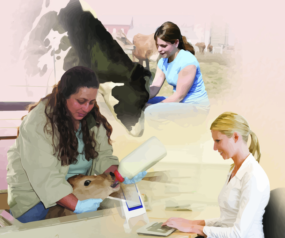The Milk Processor Education Program checkoff and other national dairy organizations staged a social media takeover on Jan. 27 to “take back the conversation about milk.” The campaign was designed to help combat the wave of confusing and misleading information regarding the value and safety of dairy products that has permeated the social media world, which organizers say has contributed to declining milk sales.
Organizers wanted to combat confusing claims from competitors and activists and media click-baiting, a practice of choosing the most alarming word choice in headlines to attract clicks on social media sources. Since much of the damage in the dairy public opinion battle has come through social media, organizers used that very tool to work for the industry.
Participants were asked to register and download a content management app to help place content on the takeover day. Pre-scheduling posts meant that people could post research and social media friendly content all day long.
Organizers helped out by supplying a selection of pro-milk content, including studies from scholarly sources such as the American Journal of Clinical Nutrition and the American Academy of Pediatrics, graphics highlighting milk nutrition facts, quotes, blog posts, videos and sound bites.
Users could then select the content that appealed most to them, or post their own material using #MilkTruth as a hashtag to help tie the campaign together.
The campaign planned to promote five core truths about milk to keep the message simple and understandable. According to the movement’s website, milktruth.com, these five focus points are:
- Milk is a nutrient powerhouse.
- Milk provides valuable nutrients without excess fat or calories.
- Milk offers a range of health benefits, backed by decades of research.
- Milk is not easily replaced.
- Milk is real, wholesome and local.
The campaign invited individuals, companies and organizations to share this message on a variety of social media platforms including Facebook and Twitter. They also suggested to post hourly.
Alicia Nguyen, Progressive Publishing online editor, was the Progressive Dairyman representative for the #MilkTruth campaign. She says, “It was pretty easy, and this was a good thing to do because some of the people I know personally are misinformed about milk. It’s good to fight back because there is some crazy and confusing information out there in documentaries and on the Internet and Facebook.”
The dairy industry’s opponents didn’t stay silent during the campaign. Shortly after the campaign began, PETA published a press release, entitled “What’s the real ‘#milktruth’?,” in which they restated their position against the dairy industry. Others received negative feedback from vegan and vegetarian groups.
Anticipating this, the run-up to the campaign included a webinar to prep participants for negative feedback. Don Schindler, a blogger and expert in industry and social media, made several recommendations including encouraging participants to be calm and courteous, and to take a step back if emotions get too high. He reminded participants, “You don’t have to get into every argument you are invited to.”
Julia Kadison, CEO of the Milk Processor Education Program, says, “It’s important to recognize that there will be some opinions we can’t change, like the activists. Rather than engaging this audience, we can focus our efforts on correcting misinformation and telling positive milk stories.
“We do want consumers to be able to make informed choices, and to do this, we must continue to take a proactive, aggressive approach and collaborate as an industry to make sure the truth is heard.”
At the end of the daylong blitz, more than 6,700 pieces of content were shared, reaching more than 21 million people. During the campaign, milk was a trending topic on Facebook and on Google Trends.
Kadison says, “The launch of milk’s consumer confidence efforts through the Get Real initiative was a strong start to our journey to take the conversation back and more actively and aggressively defend milk’s reputation in the marketplace. We accomplished a lot, including unprecedented response and engagement across the entire dairy industry.” PD






